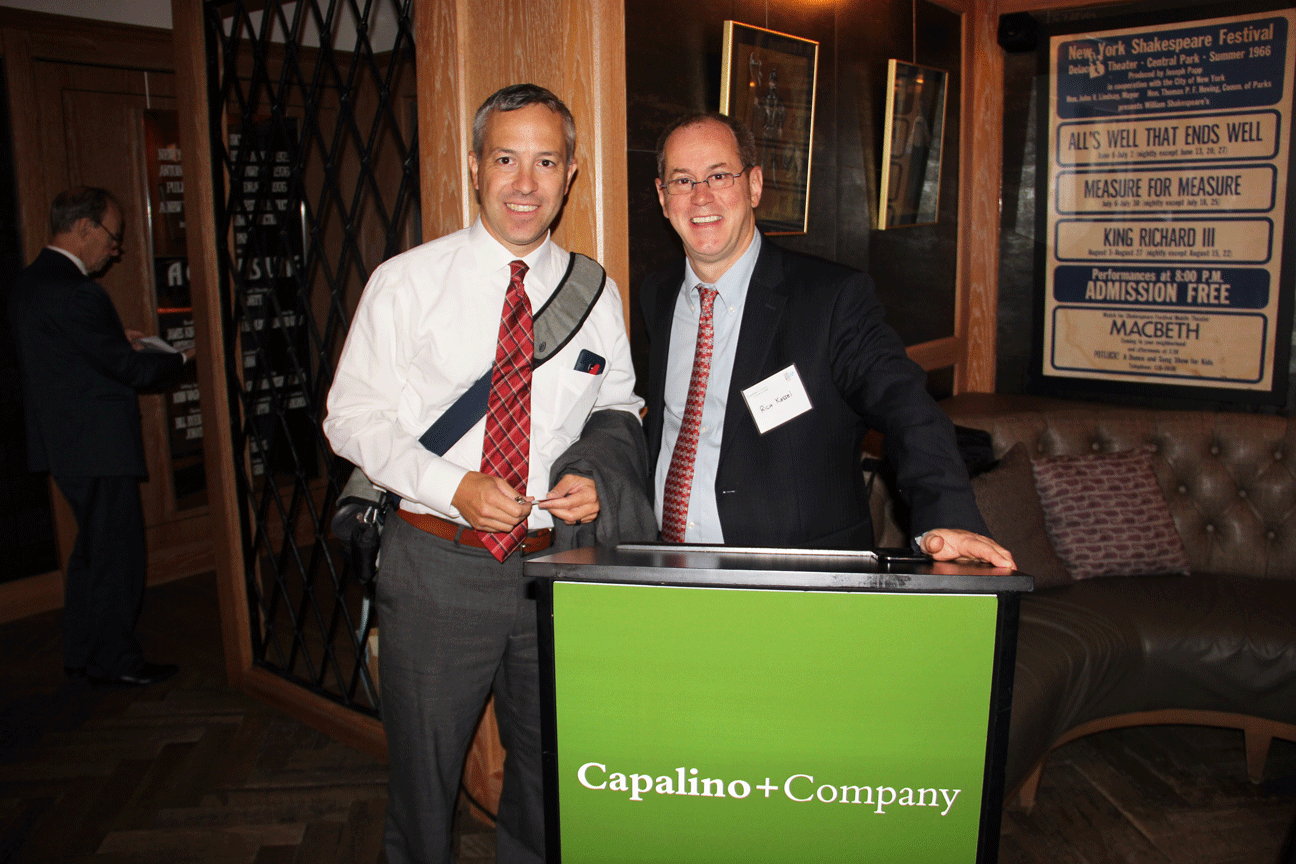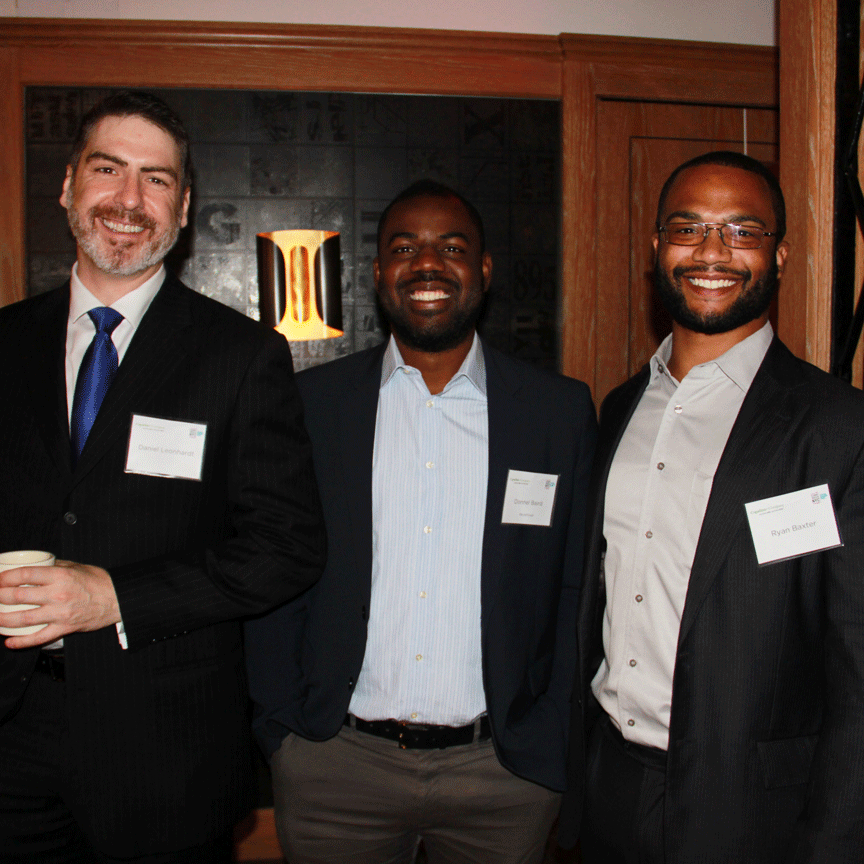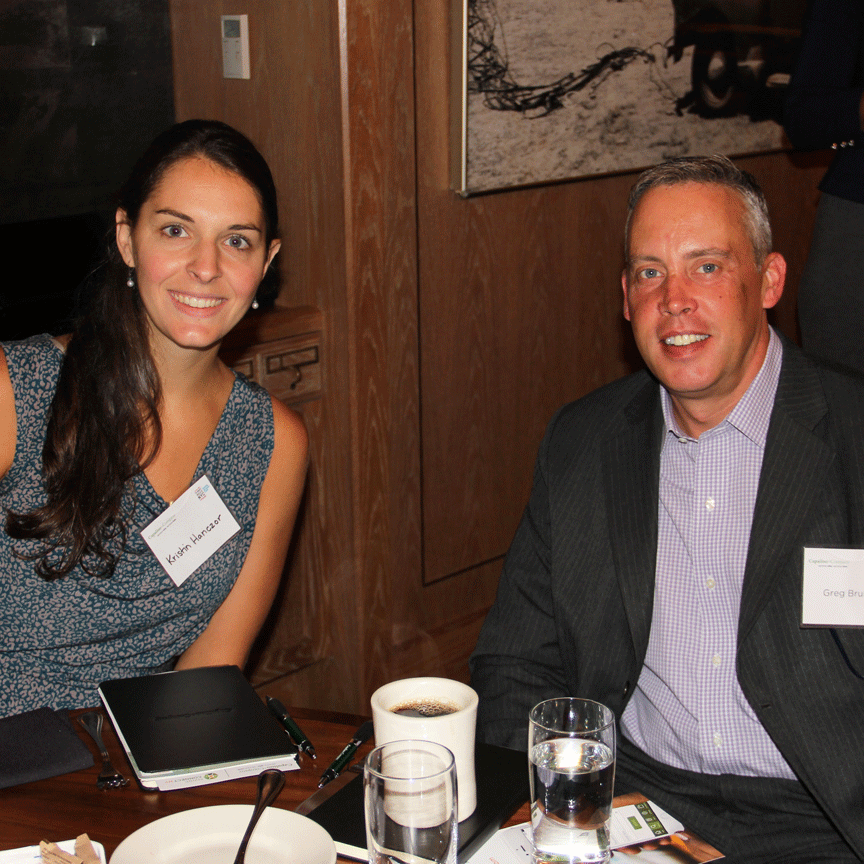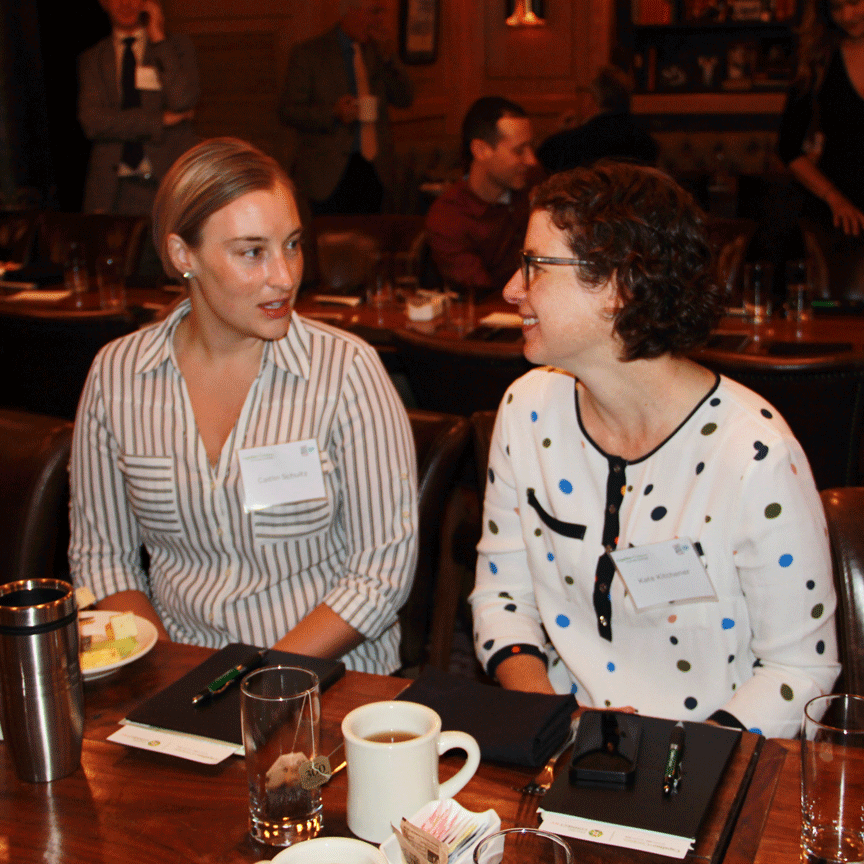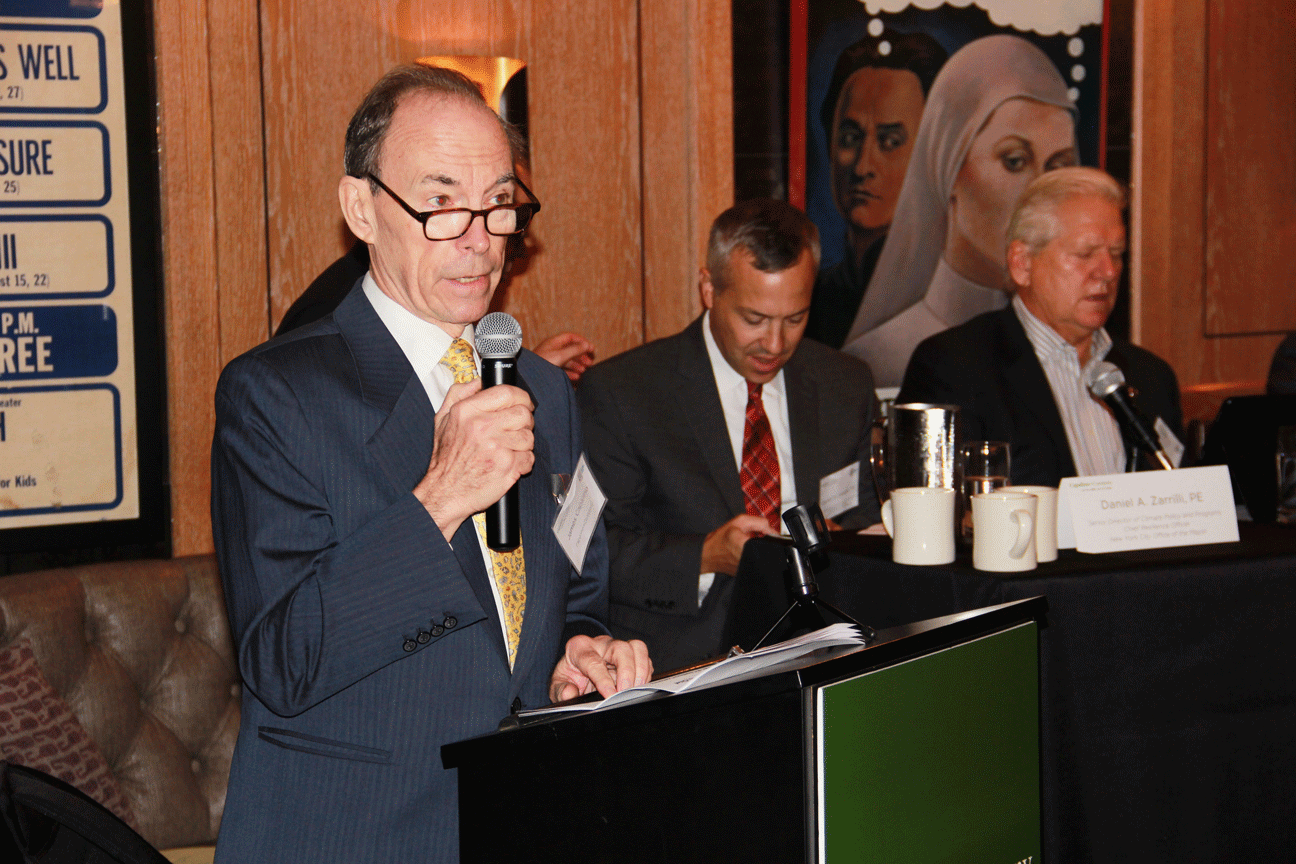
Creating a Sustainable Future: Capalino Hosts Climate Week Event with a Focus on Business Opportunities Created by 80×50
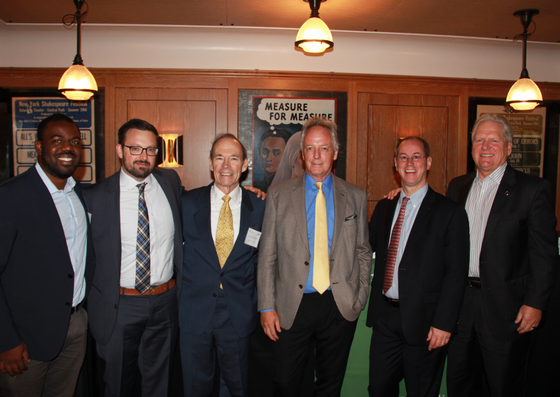
From L to R: Donnel Baird (BlocPower), Zach Kahn (BYD America), Jim Capalino (Capalino), David Hillcoat (Cooper Tank Recycling), Rich Kassel (Capalino), John Gilbert (Rudin Management)
Written by Rich Kassel, Executive Vice President, Capalino
Last week, thousands of environmentally-focused business leaders, investors, and advocates met in New York for the 2017 edition of Climate Week NYC. Capalino hosted a Climate Week-affiliated panel, and invited thought leaders from the public and private sectors to discuss the many business opportunities created by the City’s commitment to reducing greenhouse gas (GHG) emissions by 80 percent by 2050.
The premise of the event was clear: thanks to the City’s 80×50 commitment, along with complementary policies like Vision Zero, Zero Waste, and the Greener, Greater Buildings Plan, there is an unprecedented business opportunity in New York for companies that are bringing cleaner energy, improved energy efficiency, smarter solid waste, and more sustainable transportation ideas to our city.
Dan Zarrilli, Senior Director of Climate Policy and Programs and Chief Resilience Officer in the Office of the Mayor, kicked off the panel, highlighting the de Blasio administration’s commitment to 80×50, including the Mayor’s recent announcement of his groundbreaking plan to require thousands of existing buildings in the city to be retrofit to reduce their energy consumption. He also talked about the importance of agencies working together to accelerate the implementation and deployment of new, cleaner technologies that will increasingly be coming to New York, thanks to 80×50.
Our panel of entrepreneurs brought their diverse expertise to the conversation, and provided unique insights into the opportunities they’re seeing in their respective industries. Donnel Baird, CEO of BlocPower, spoke of the opportunities to connect investors to clean energy projects in low-income communities and generate strong financial returns. John Gilbert, EVP of Rudin Management Company, walked the audience through the sophisticated energy management system they are employing in their largest buildings to save energy in real time. David Hillcoat, President of Cooper Recycling, described their new state-of-the-art recycling facility in Brooklyn, which will recycle at least 95 percent of the commercial and demolition debris they collect. And Zach Kahn, Director of Government Relations at BYD America, talked about the rapidly-developing electric truck and bus market and the potential to shift New York City’s transit buses, refuse trucks, and port-related supply chains to zero-emission vehicles.
There is no question that the market for these and other environmentally-focused ideas is exploding. Companies are bringing their technologies to New York City, sensing that 80×50 is creating opportunities that won’t go away.
A few more examples: A French company, Air Liquide, wants to create a network of hydrogen fueling stations for fuel cell-powered vehicles that will start to be sold in New York once there is fuel for them. Latham, NY-based Plug Power recently accessed NY Green Bank funding to increase its fuel cell investments in the New York market. California-based One Concern is using big data and predictive analytics to develop tools to improve our resiliency planning and our emergency response capabilities during floods and storms. The list goes on.
One example of how fast the environmental technology world is changing sticks out for me:
Just two years ago, the City did a rigorous analysis of the steps required to reach 80×50. The study assumed a large portion of the automobile market would shift from gasoline to battery power—and it anticipated that there would be no shift to electric trucks or buses at all. Since then, the technology has developed so rapidly that today Los Angeles has committed to purchasing only batteries, fuel cells, or other zero-emission buses by 2030.
Our panel highlighted companies that are identifying ways to succeed as we move towards the City’s 80×50 goal. This will be critical to doing our part to mitigate the most serious aspects of climate change in the long run. In the short run, we’ll see other important benefits too. Cleaner buses and trucks will reduce asthma-inducing diesel pollution in communities that are disproportionately burdened by truck and bus traffic, increased energy efficiency in our buildings will aid the state’s path to attaining federal ozone standards, and new approaches to handling our waste will move the City towards its 2030 goal of no longer using landfills for its waste.
The bottom line is clear—it’s an exciting time to be thinking about business opportunities created by 80×50!
To see all the photos from the event, visit our Facebook album.
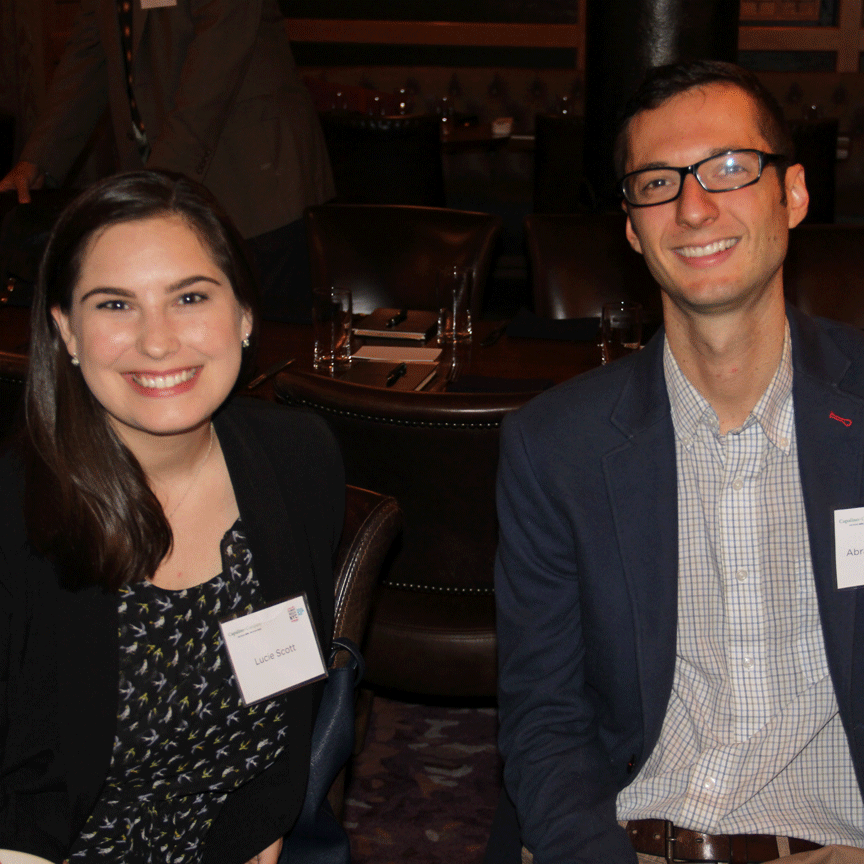
Capalino works with clients to implement strategies that encourage the adoption of innovative energy, transportation, waste and water technologies, products, and projects. For more information on our Energy, Environment + Sustainability Services, contact Rich Kassel at Rkassel@nullcapalino.com or 212-616-5822.
Energy, Environment + Sustainability Services
Get The Latest From Capalino! Sign up for our free weekly newsletter for a roundup of top news and appointments from New York City and State government straight to your inbox every Friday. Click here to subscribe to Affairs+Appointments.

